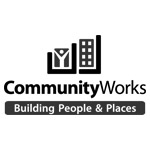South Carolina Housing Stats
$14.84
The hourly amount a South Carolina household must earn to afford a two-bedroom rental unit at HUD’s Fair Market Rent.
30%
33% of homeowners and 52% of renters are living in homes they really can’t afford — spending over 30% of income on housing costs.
80,750
Shortage of units affordable and available for extremely low income renters in South Carolina.









